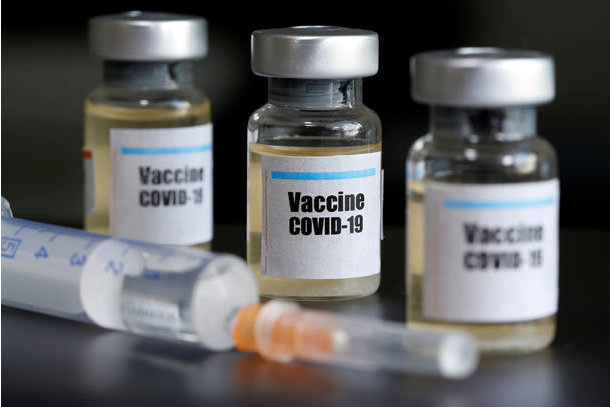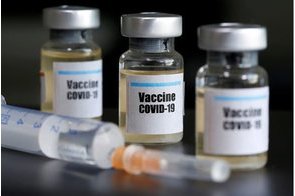Latest News
First COVID-19 vaccine doses to arrive in Nigeria by end of January – FG

News Highlight
The government said the vaccines would be first given to 20 per cent of the country's most vulnerable population when they are available.
The Nigerian government said on Sunday that the first batch of COVID-19 vaccines ordered for use in the country will arrive by the end of January, at the latest. This was disclosed by Dr. Sani Aliyu, National Coordinator of the Presidential Task Force on COVID-19 (PTF-COVID-19), during an interview with ARISE News.
Aliyu told the broadcaster that there was a presidential directive to ensure timely procurement of the vaccines to inoculate people in the country against the deadly disease, which has been contracted by over 90,000 people and killed 1,311 people in Nigeria as of January 3rd, 2020.
Speaking on the government's efforts to procure the vaccines, the PTF-COVID-19 National Coordinator said, “the president directed the Presidential Task Force on Control of COVID-19 last two weeks to get involved in the nitty gritty of the efforts to ensure that the vaccines come in a timely manner. We expect the first batch of vaccines to come in possibly towards the end of January.”
Aliyu made the disclosure at a time more than 12 million doses of COVID-19 vaccines have been administered around the world, mostly in the advanced countries. According to data provided by Our World in Data (OWID), a scientific online publication, as of December 31, 2020, China had administered 4.5 million doses of COVID-19 vaccines, while the United States and Israel had respectively administered 4.23 million and 1.09 million doses as of January 2, 2021.
The United Kingdom has so far inoculated around one million people. On Monday, the country became the first nation to administer the Oxford-AstraZeneca COVID-19 vaccine to its people outside of trials. According to media reports, 530,000 doses of the vaccine are ready for use and the government hopes it will deliver tens of millions of doses within months.
The Oxford-AstraZeneca vaccine is reportedly cheaper than the Pfizer-BioNTech and Moderna vaccines. It can also be stored at fridge temperatures, making it easier to transport and use, compared to the other two vaccines that required much lower temperatures for storage and transportation.
The roll-out of COVID-19 vaccinations across the world has further revealed the divide between rich and poorer countries. The former have acquired billions of doses while the latter are yet to acquire any doses, much less begin immunization.
In his interview with ARISE News, Aliyu said Nigeria cannot afford to be left behind in COVID-19 vaccine access, adding that a coordinated process has been put in place to utilize existing health structures that have been used in previous vaccine administrations. He also said the federal government has signed an agreement with Gavi, the Vaccine Alliance to increase access to the vaccines.
“We cannot allow ourselves to become a pariah nation. We don’t really have a choice when it comes to vaccines, we have to vaccinate our public, especially those that are vulnerable, the elderly, those that are most likely to have severe illness and we will definitely not be left behind as a country,” Aliyu said.
During a press briefing in November, Nigerian Vice President, Yemi Osinbajo, said procurement of COVID-19 vaccines was a priority of the administration of President Muhammadu Buhari. The government said the vaccines would be first given to 20 per cent of the country's most vulnerable population when they are available.
Related News
Latest Blogs
- Access Holdings and African art renaissance
- NMDPRA should balance local content with market competition
- Why ‘T-Pain’ should be Tinubu's least worry
- Access Bank Project 111 providing a lifeline for women battling fibroids
- How Nigeria can boost maritime financing
Most Popular News
- Kenya’s KCB Bank signs €230mn deal to support SMEs, youth and women
- AfDB has invested $1.44bn to support infrastructure development in Nigeria
- FG proposes N47.9 trillion for 2025 budget
- Unpaid care work prevents 708m women from participating in labour market
- Airtel Africa records broad growth in half year results
- UK budget to drive wealth and talent exodus from Britain - investor







